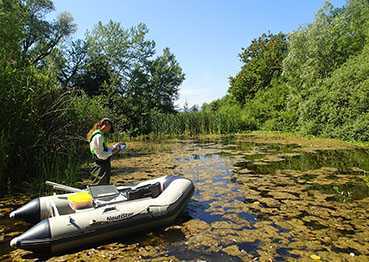

Ponds are numerous and collectively representing 30-50% of standing water on earth. Ponds, here defined as small standing waters can be permanent or seasonal, man-made or naturally created. Networks of ponds, or pondscapes, are crucial ecosystems for the conservation of freshwater biodiversity. In Europe, they support 70% of the regional species pool. They also support a larger proportion of rare, endemic and threatened species than lakes and rivers.
Ponds have been neglected in national and EU policies, strategies and monitoring initiatives despite their importance for biodiversity conservation and their exposure to many of the same threats affecting larger bodies of water (e.g. water use, pollution, invasive species). They are also vulnerable to climate change as they are poorly buffered against temperature extremes and changes in hydrology, impacting both their number and ecological quality.
Filling information gaps on biodiversity in both permanent and temporary ponds at a transnational level is hindered by the lack of standardised methods and tools for collecting and managing biodiversity data, which are available for other inland water bodies such as lakes and rivers.
The BIODIVERSA+ TRANSPONDER (2024-2027) project aims to fill this gap.
The main objectives are to:
HEPIA in collaboration with Conservatoire et Jardin botaniques de Genève (CJBG) contribute to the optimisation of monitoring methods by focusing on the genetic diversity of two macrophytes species: Potamogeton natans and Lemna minor. These two species of spermatophyta are widespread and functionally important, which makes them relevant.
Project partner(s)
Project leader - team
Aurélie Boissezon
(HEPIA),
Sarah Cédileau
(HEPIA),
Elisa Denis
(HEPIA),
Elias Valenti
(HEPIA),
Eliane Demierre
(HEPIA)
